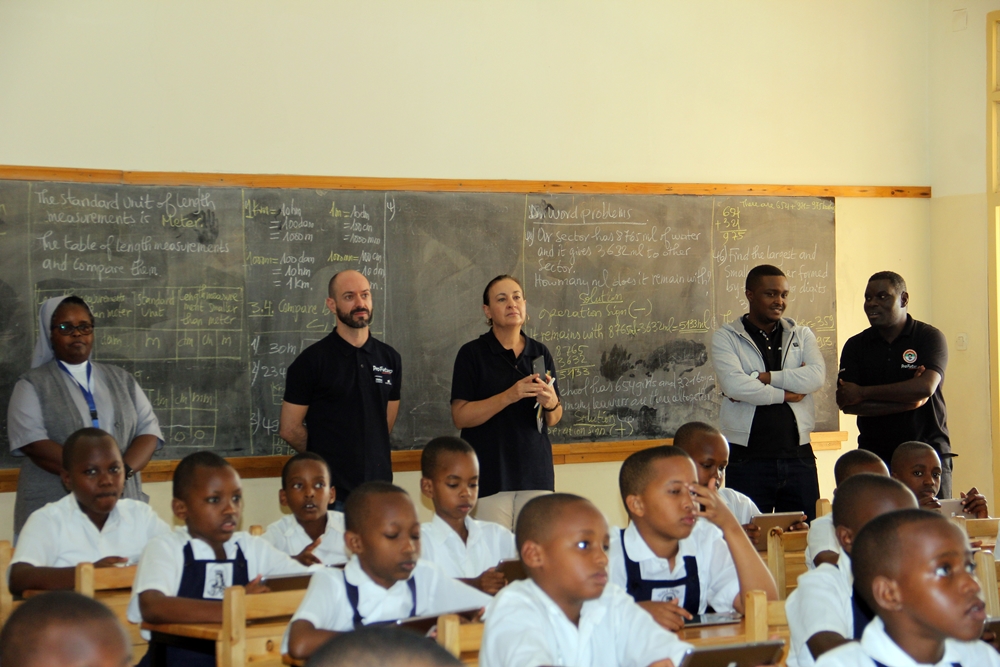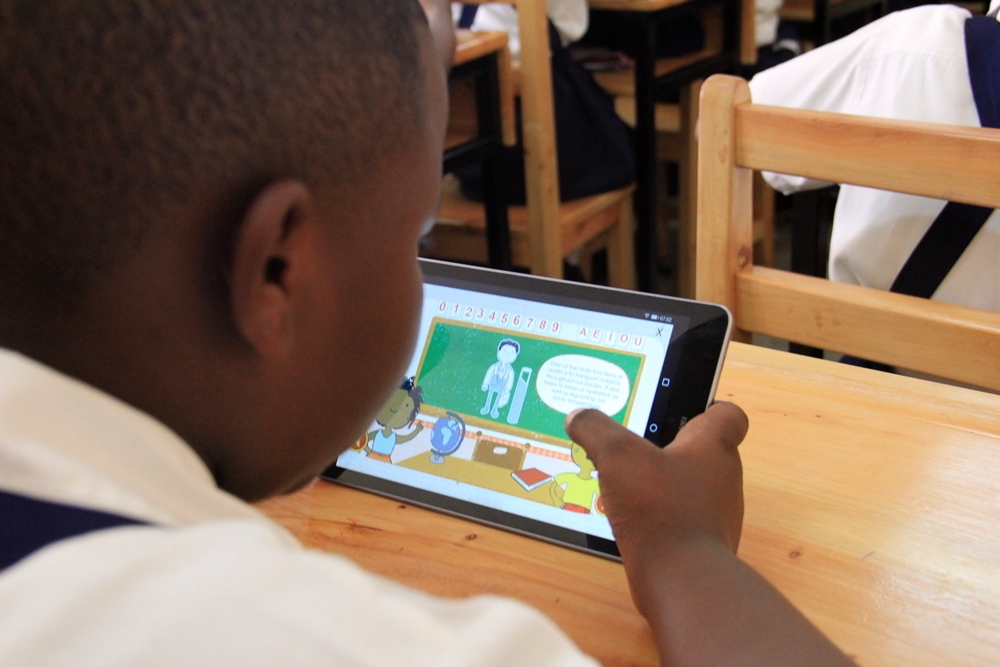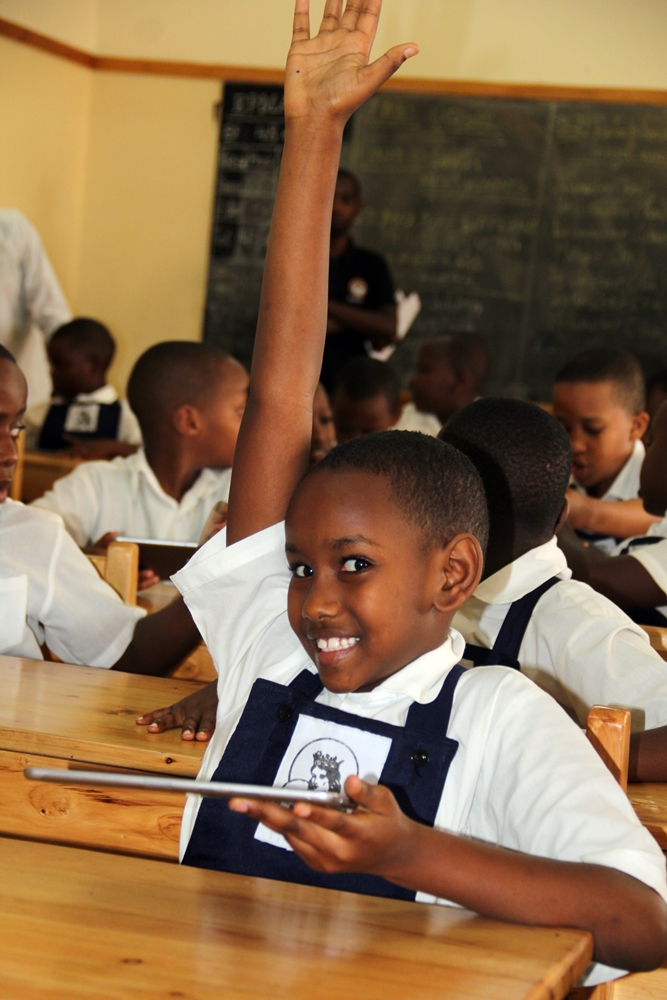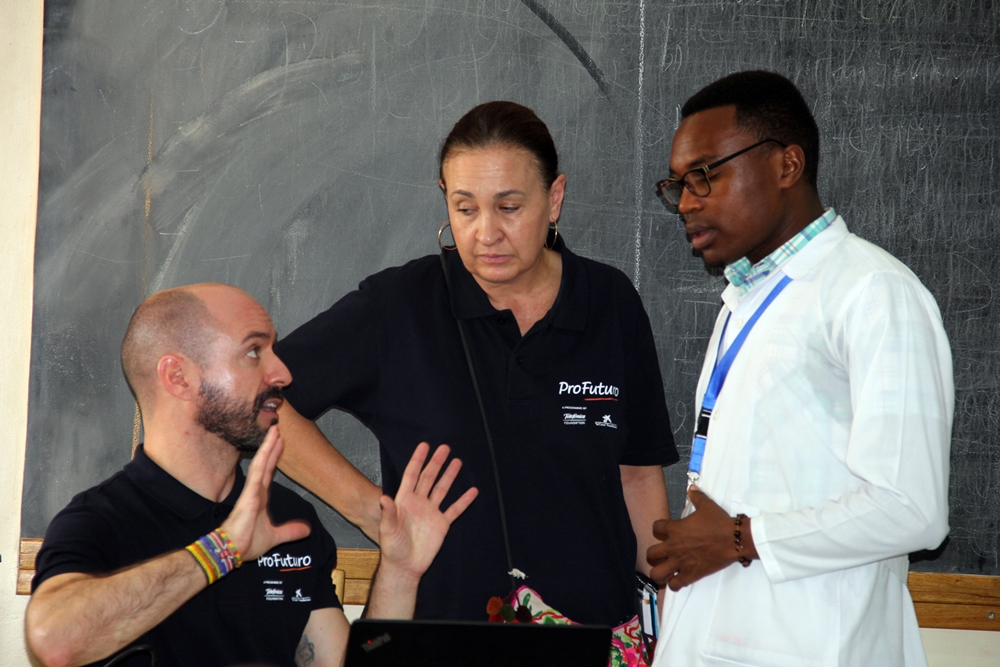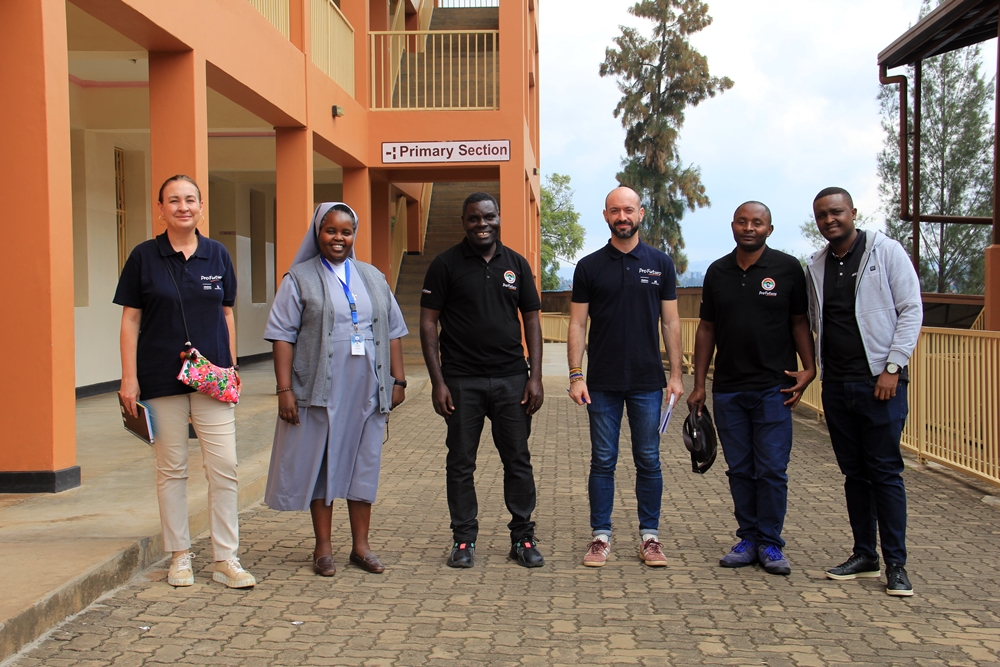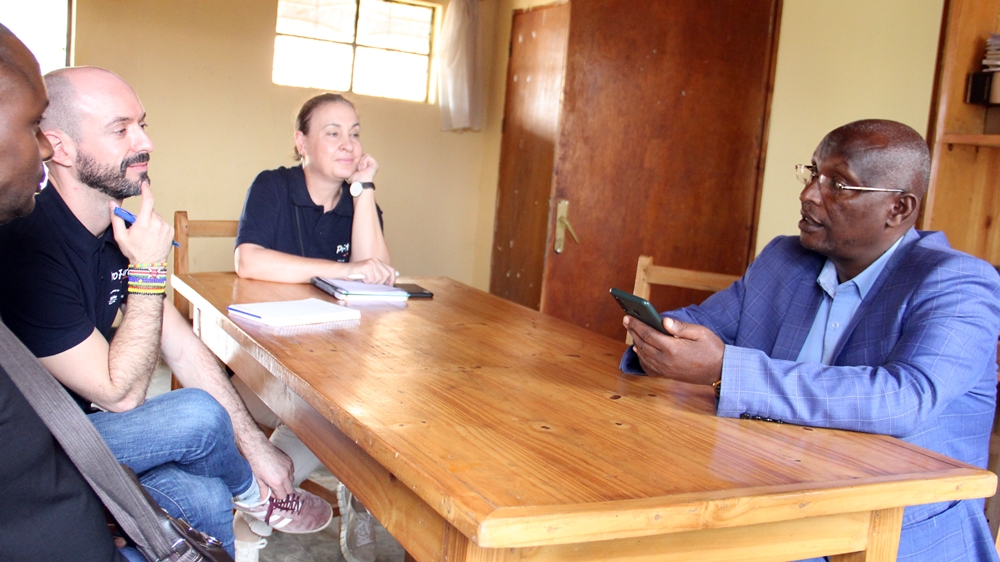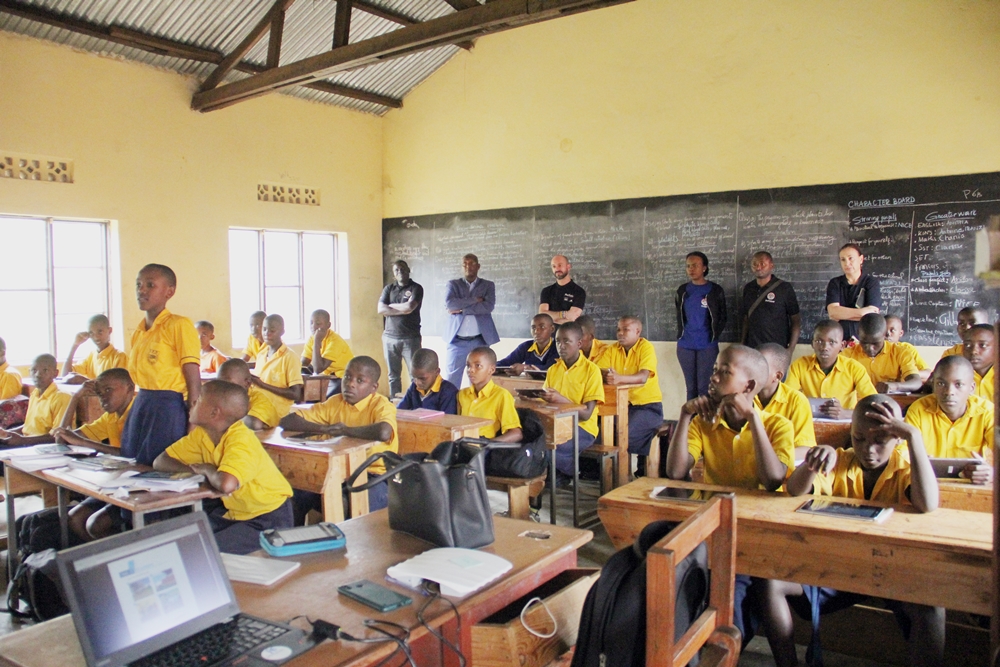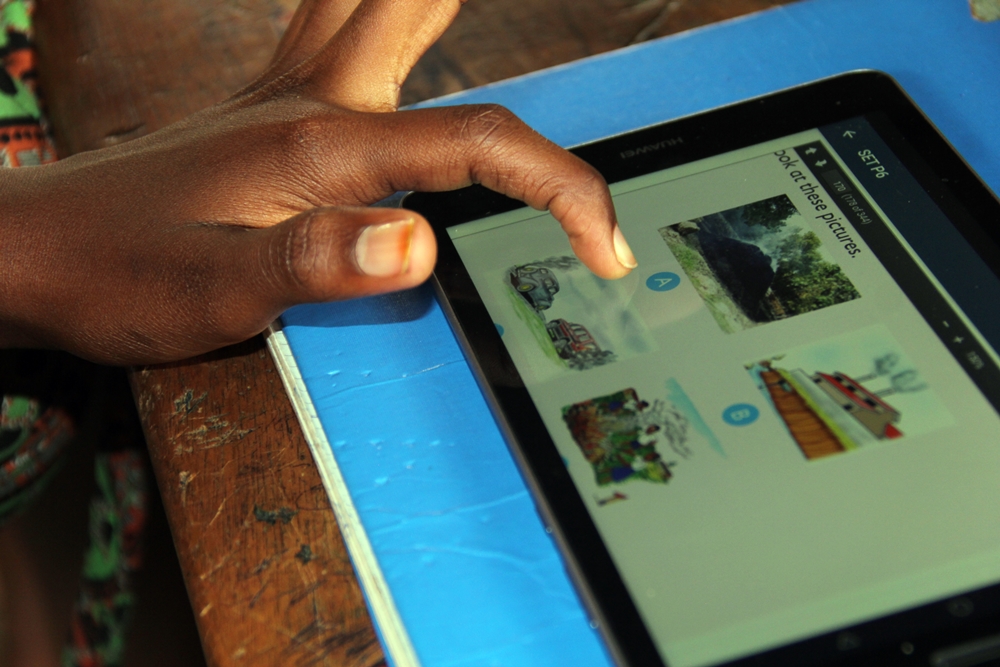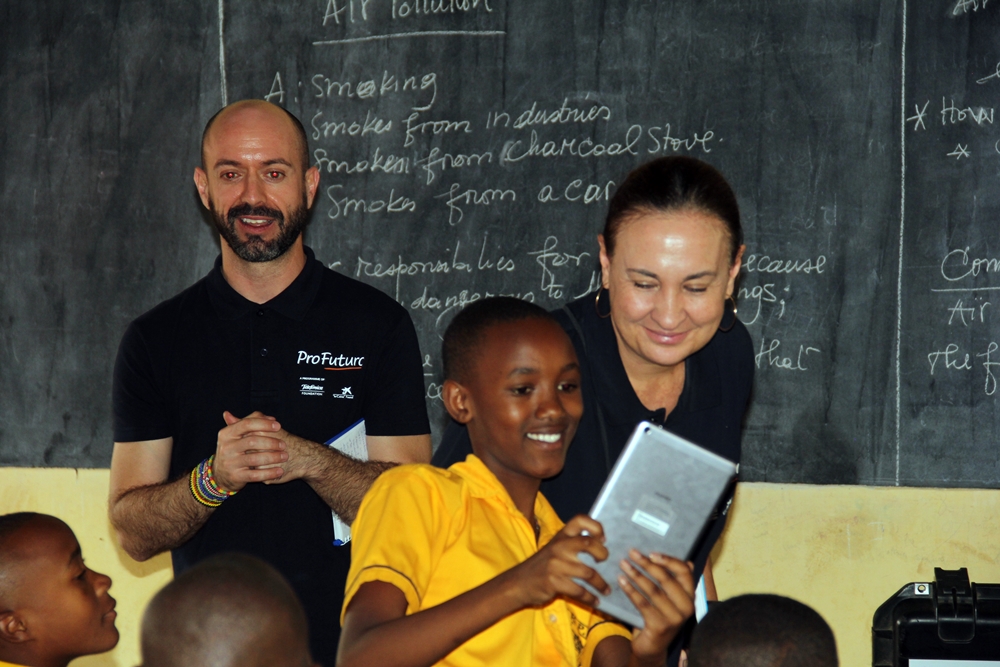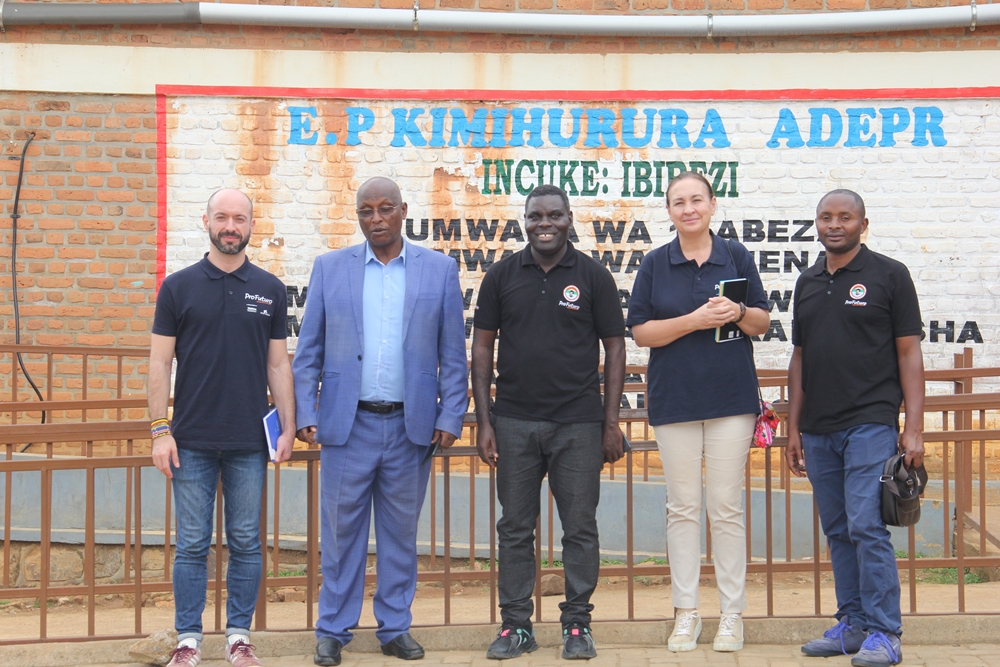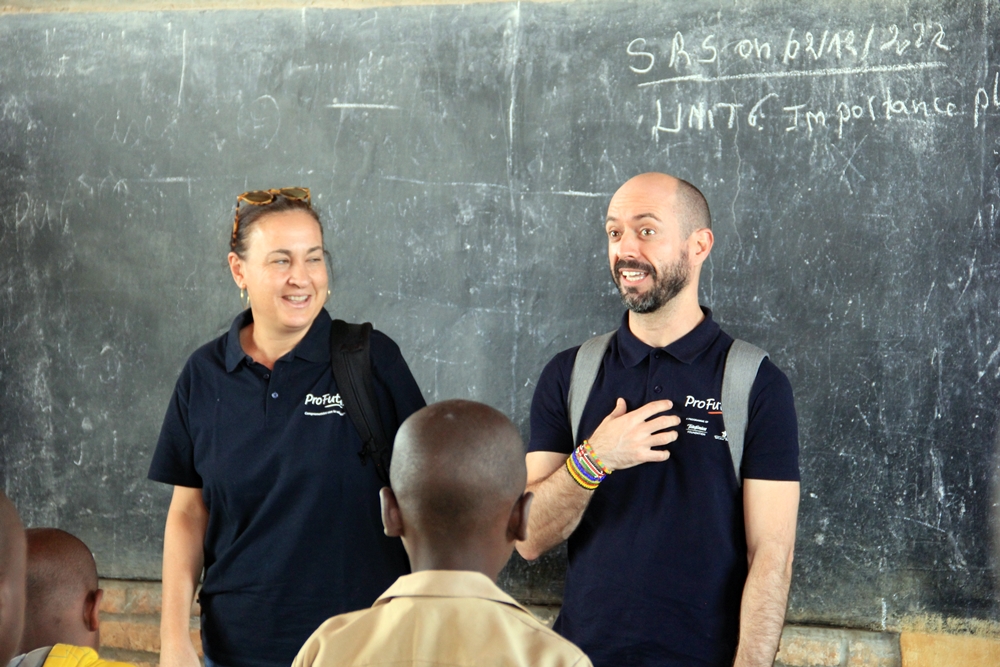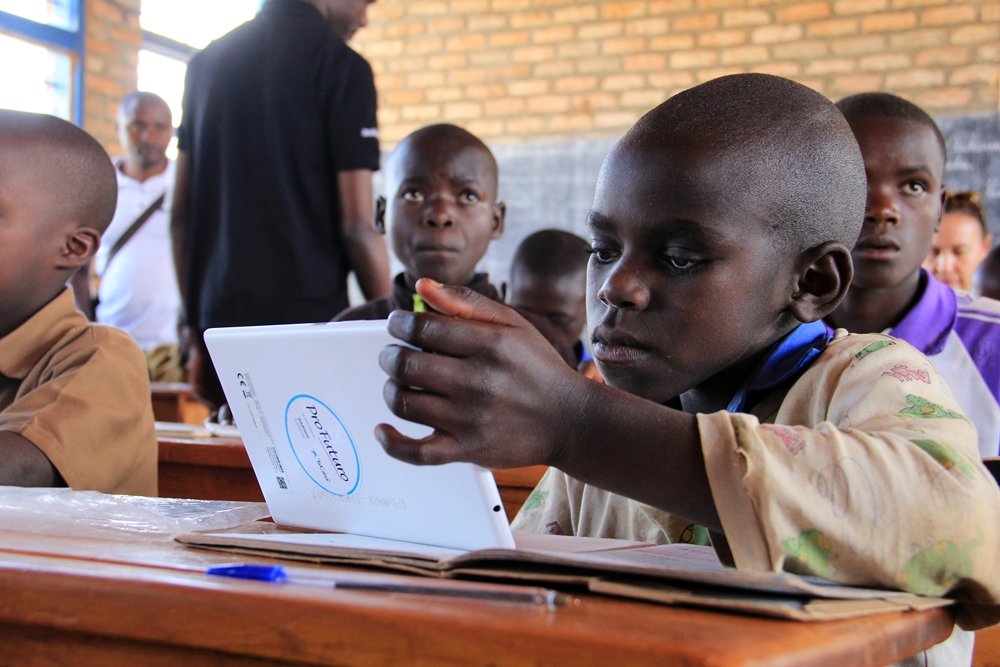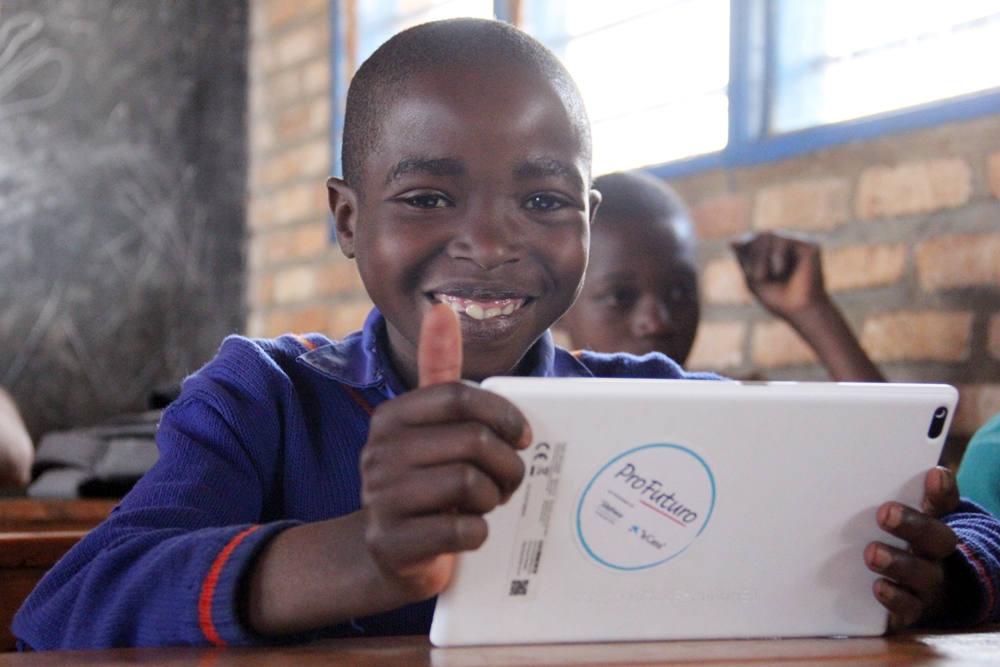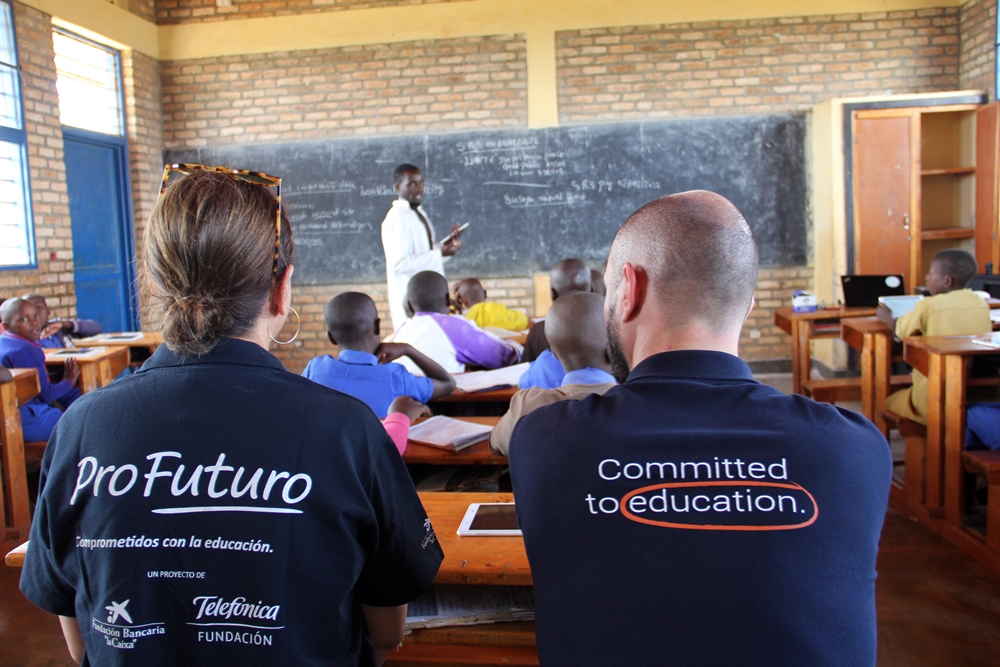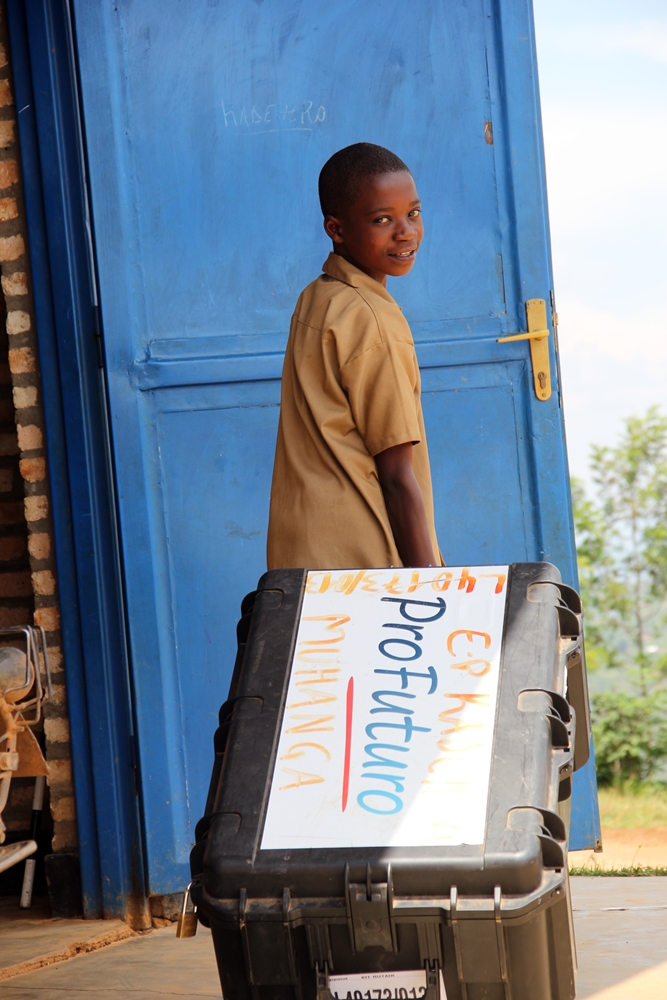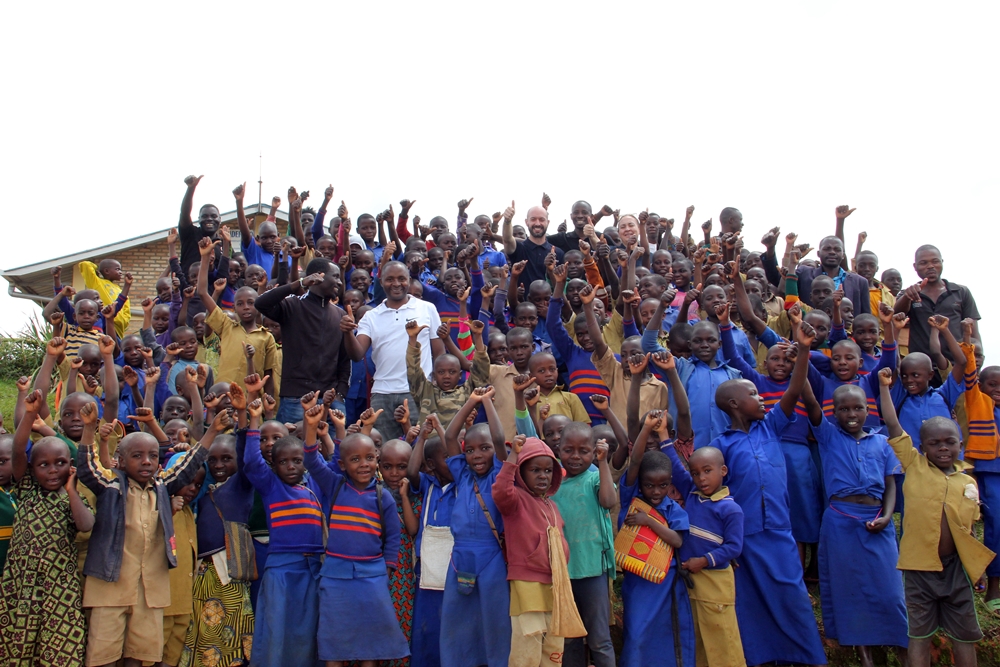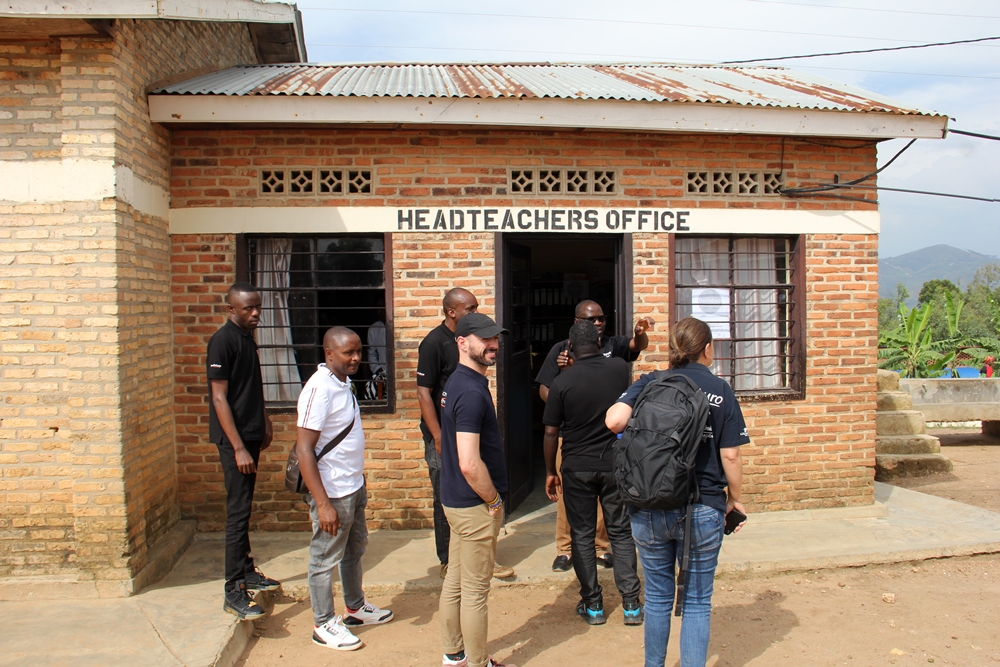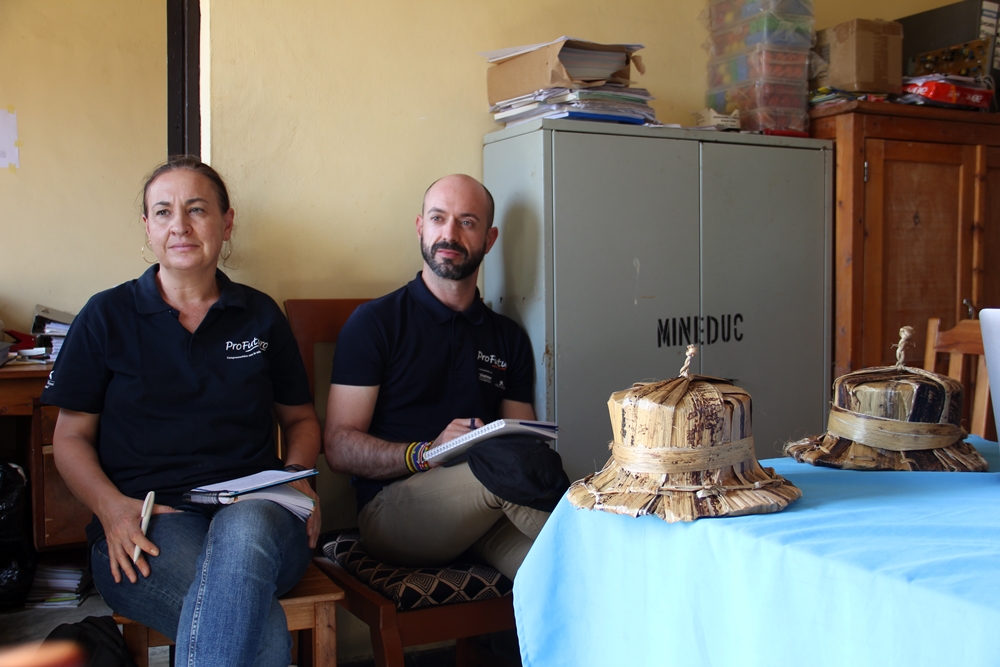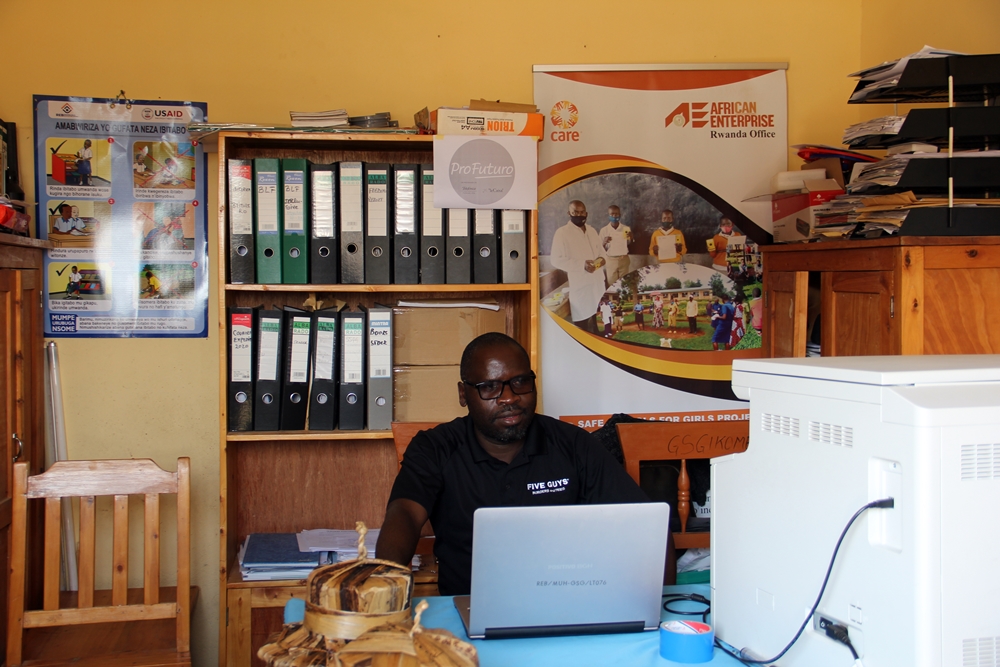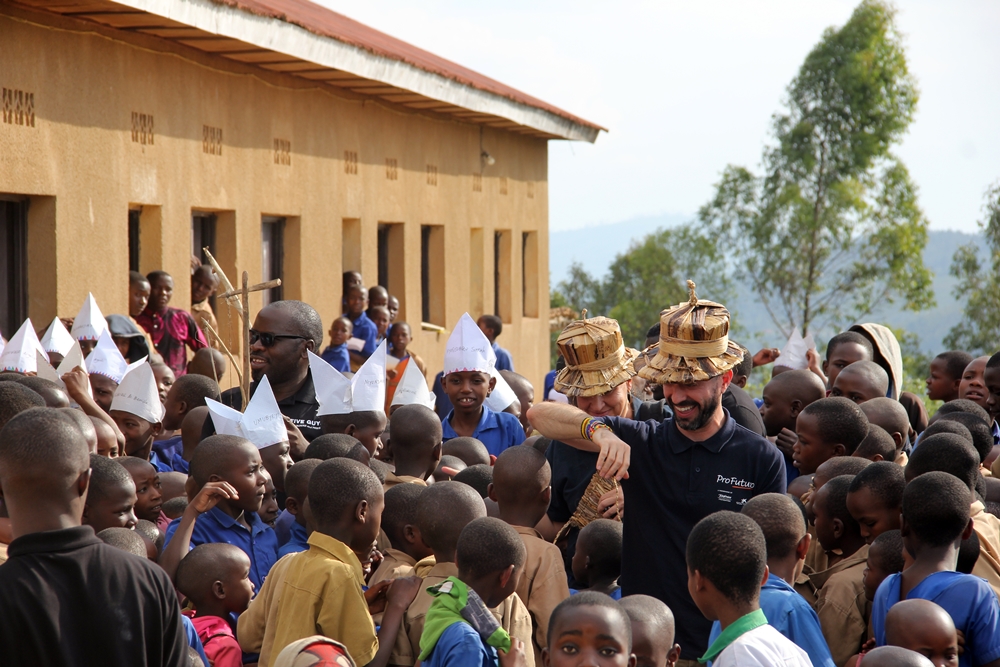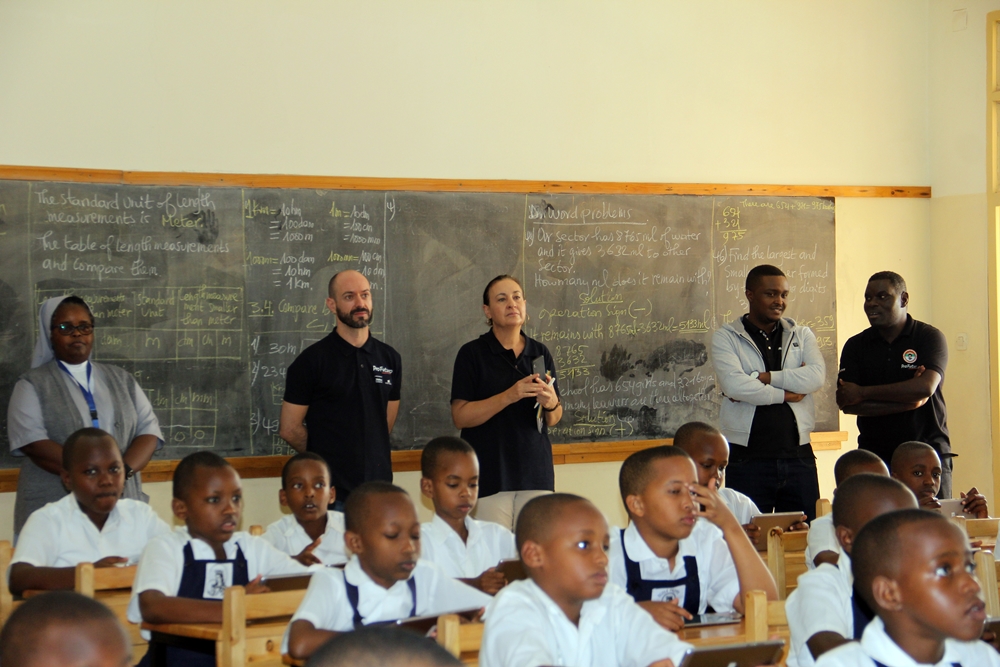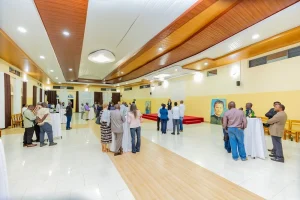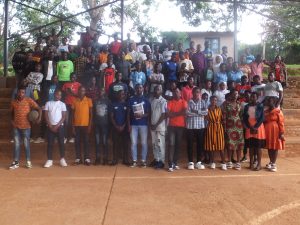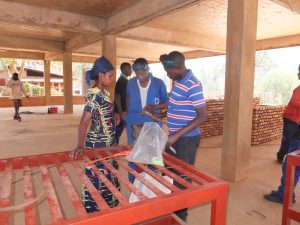ProFuturo Spain Team in Rwanda to discover programme challenges and Possible solutions
By Ange de la Victoire DUSABEMUNGU
In the early dates of December 2022, ProFuturo staff Marián Álvarez in charge of finance for Africa and Asia Profuturo Program and Mr. José Manuel Carrillo, in charge of training and operations visited schools that are part of the ProFuturo Digital Education program in Rwanda.
Among the centers they visited around the country were five schools where the ProFuturo Digital Education program is being implemented in collaboration with the Salesians of Don Bosco in the Africa of Great Lakes province.
In Kigali city Mrs. Marián Álvarez and Mr. José Manuel Carrillo visited École Privée Marie Auxiliatrice (Epma), Kimihura Primary school and Jurwe Primary School while in the Southern Province the team visited Kadehero Primary school and Gikomero Protestant School located in Muhanga District Southern Province.
During this visit, there was a gathering and sharing of information on the progress of the ProFuturo Digital Education Program and some of the challenges that should be addressed in order for the program to be successful were identified.
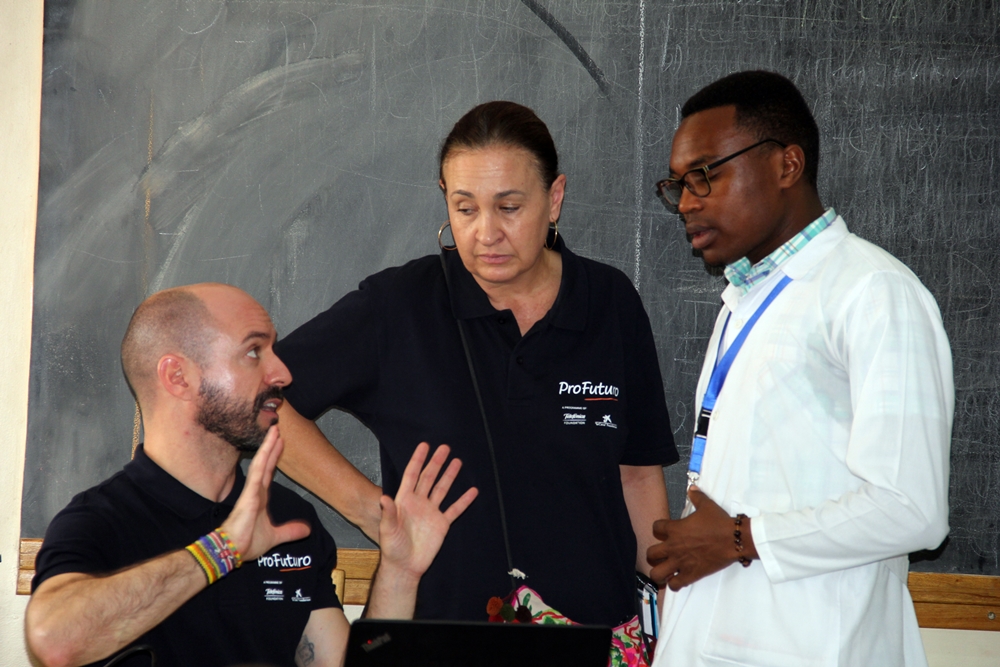
Some of the challenges that have been revealed include the fact that the number of tablets used by students is less than the number of children in school, the problem of Teachers turnover which is a threat to this program since those who turn over had been previously trained on the use of ProFuturo digital tools, teachers who have little knowledge in the use of ICT, etc.
On the other hand, the staff of ProFuturo were very pleased with the way this program is being implemented in Rwanda and that it gives hope for the future of Digital Education in Rwanda.
Below is a detailed interview with José Manuel Carrillo after visiting some of the schools that are implementing ProFuturo in Rwanda.
You will start with the introduction and tell us why are you here in Rwanda
Well, I’m José Manuel Carrillo. I work for ProFuturo Spain, and I am in charge of the training area. I mean, I train coaches and teachers, so they can use the ProFuturo solution. We came for the first time in Rwanda in 2019. I came twice in March and July to train coaches and teachers. And since the COVID pandemic came into our lives, we could not travel to Rwanda. So now it’s the first time we come back to the country. And we are just doing a follow up visit to some of our schools to see how the project is being implemented to discover the challenges they’re having also in the schools using the ProFuturo solution. Mainly, that’s the purpose of the visit.
After visiting some schools, what have you seen so far?
We have been working with LaSalle. From Monday to Wednesday, we visited some schools where they implemented mathematics class and today we visited two schools in Kigali, Epma and Kimihurura Primary School. We have seen in the first school that the teacher managed very well the use of the ProFuturo solution with 48 children. They were talking about water, sources of water, and it was amazing. They have very good performances. We saw a teacher using the Rwanda Basic Education contents in PDF format for children and they were also following Rwanda Equip lessons on his tablets. And also it was amazing to see children learning with digital tools.
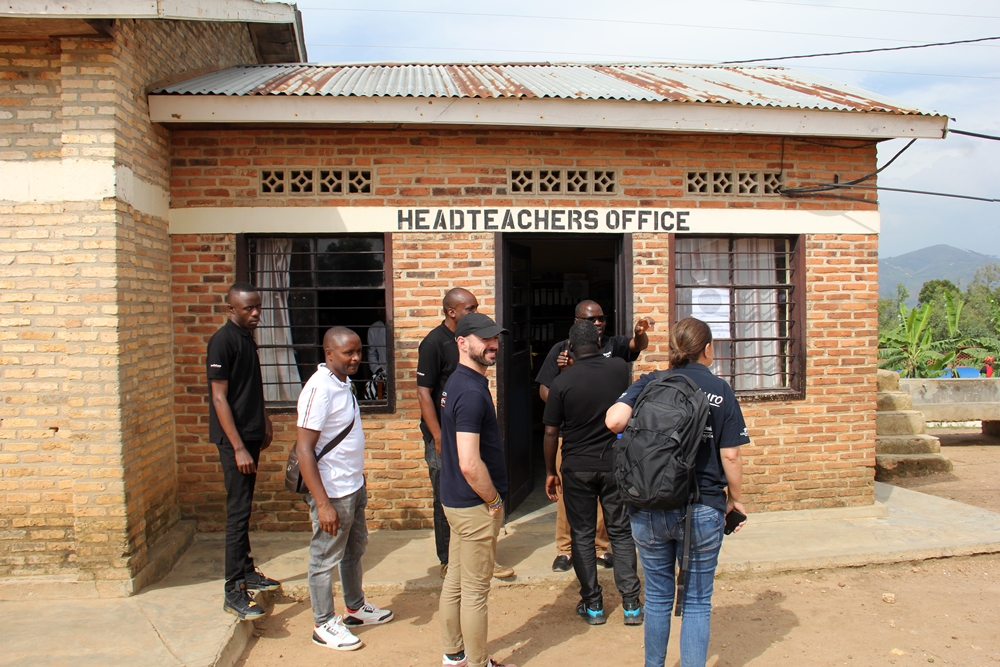
There are some challenges that they have, right. Could you tell us for instance, what are the plans to fill the digital resources gap in the platform?
Yeah, in the ProFuturo platform, we have resources in English, French, Portuguese, and Spanish. So in English and French we have more than 114 resources. The question is that the proFuturo resources sometimes are not aligned with the national curriculum in Rwanda. So we have done the matching of both syllabus, ProFuturo and REB.. But still, for teachers, sometimes it’s a bit complicated to identify the ProFuturo resources that are needed for their lessons following the national curriculum. And also one of the challenges talking to one of the teachers is about using, on the one hand, the ProFuturo solution. And on the other hand, Rwanda Equip because they have to follow Rwanda Equip since it is the national syllabus, let’s say so they follow what it says in terms of curriculum. But the way we use both Rwanda Equip and ProFuturo is kind of challenging sometimes. It’s true that as far as I know, Rwanda Equip has been implemented some months ago. So probably teachers will need more time to use both resources to run the equipment profitably. But we’re going to see if there is a possible way to include Rwanda Equip in the ProFuturo solution, so it would be much easier for teachers.
Let’s now talk about availability of equipment. Do you think that ProFuturo equipment is enough? Or you are planning to add more because some teachers, and some schools say that they are having little equipment? What about that problem?
Yes, this is a common request in many schools. At the beginning of the programme, when we made plans, we visited the schools that were going to be included in the ProFuturo to the programme. So we made an assessment of the schools and depending on the number of children, the enrollment of children in the school we sent a specific number of suitcases. It’s true that in many schools, the enrollment now is higher. And we know this is one of the main challenges. We at ProFuturo need to analyze if the schools are performing well and they need more gadgets, probably we can see if other schools are not performing that well. We could take suitcases or tablets from some schools and give it to the best performing schools. I mean, this is something we need to check between Profuro and partners to try to find the best possible solution.
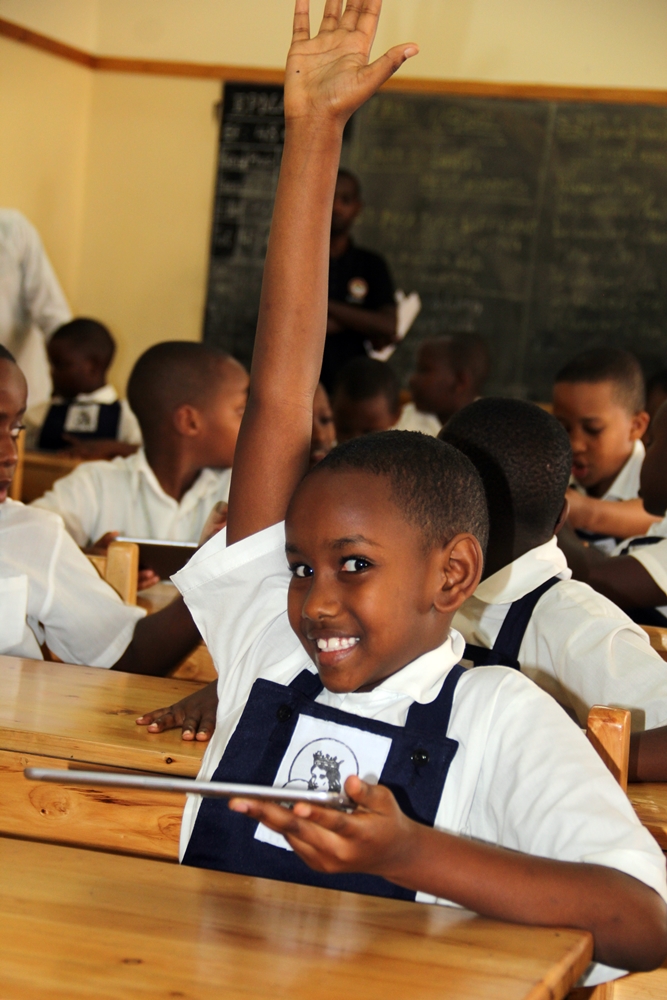
You talked about performance, How Rwanda is performing?
Rwanda is performing very well. I’m not telling this because you are here with me. But really Rwanda is performing very well, since the very beginning, we have a group of coaches in the three organizations we are working with. We are working with UNHCR, in refugee camps here in Rwanda. So we can say that the team is great, teachers are performing very well, and we understand that using the ProFuturo tools is not that easy. It takes time to get used to using the tools. But we see a great improvement, we see that even some schools that were not performing very well at the beginning, they are now showing that they are able to manage digital skills. And I mean, we are super happy with the performance of the country really.
Is ProFuturo something which will come and go or are there plans to expand even in some other countries like Burundi for instance?
That’s one of the questions that I have asked myself why ProFuturo is not in Burundi. So I will be the one to go back to ask next week, but ProFuturo will stay here. So the idea is that all the equipment that teachers trained with and everything with this programme should be owned by the schools, because finally it’s a project for them. It’s a programme for children and teachers at the school level. So they should be the owners of the project of the ProFuturo programme for sustainability. So the ideas that we’re putting out will remain here. I mean, the suitcases, the devices, everything will stay here forever, we will not take it back to Spain. That’s not the idea, of course. So we need to work towards the sustainability of the programme to make schools the real owners of the ProFuturo Digital programme, so the whole school community should be aware of the importance of using digital tools for the future. And I mean, this is a teamwork approach, community, government, schools, teachers, families, everybody should be involved. So ProFuturo will stay in the long term.
Now coming back to the ProFuturo and REB curriculum, how are you coping with the two?
We have already done the matching of the ProFuturo and REB syllabus. So we understand that there are some gaps in the ProFuturo resources. That’s why teachers can upload their own resources into the platform. We have seen today, for instance, that for science, they uploaded or coaches working with the teachers, they uploaded some contents in PDF into the platform. For Kinyarwanda is the same, we don’t have content in Kinyarwanda. But the platform is open and ready to receive resources uploaded from teachers or coaches, for instance, for local languages. So we have done this exercise of matching both ProFuturo to the national curriculum. And the idea is that teachers could work hand in hand with the coaches to identify the ProFuturo resources that are meeting REB requests, let’s say in terms of content, so we have done this activity. And probably we have to focus a little bit more on that to show teachers how they can use the ProFuturo resources following the national syllabus.
You recently added more schools in the programme here in Rwanda, do you plan to add more and more?
I’m always ready to train more teachers and more coaches. Yeah, well, I mean, that’s something also we should see with Salesians and the team here in Rwanda, together with ProFuturo Spain, but I think that we are always open to upscale the programme. But we need to plan since now, we are in a world crisis with many problems, like inflation of prices and everything. I mean, we need to think about that. But why not? It could be a good idea.
Outside of the ProFuturo issues, how have you seen Rwanda?
It’s a beautiful country. It’s true that two times when I came here in 2019, I stayed in Kigali. I didn’t move from Kigali, but this week, we have already been and we have already visited many schools in the Byumba region and everything is green. You see crops everywhere, rice, maize and bananas. I mean, it’s amazing coffee, tea. The landscape is one of the most beautiful countries I’ve seen in Africa. Definitely.
Do you see hope for Rwanda’s education in the future?
Of course. When you land in Kigali, and when you go out of the terminal building of the airport, you already see that gardens are well kept, and you don’t see plastics in the road. So that means also that you are taking care of your environment and that’s also part of the National Education, I guess. And definitely, I see that digital skills are on the agenda of the government in Rwanda. So definitely I see a bright future in Rwanda’s Education.
